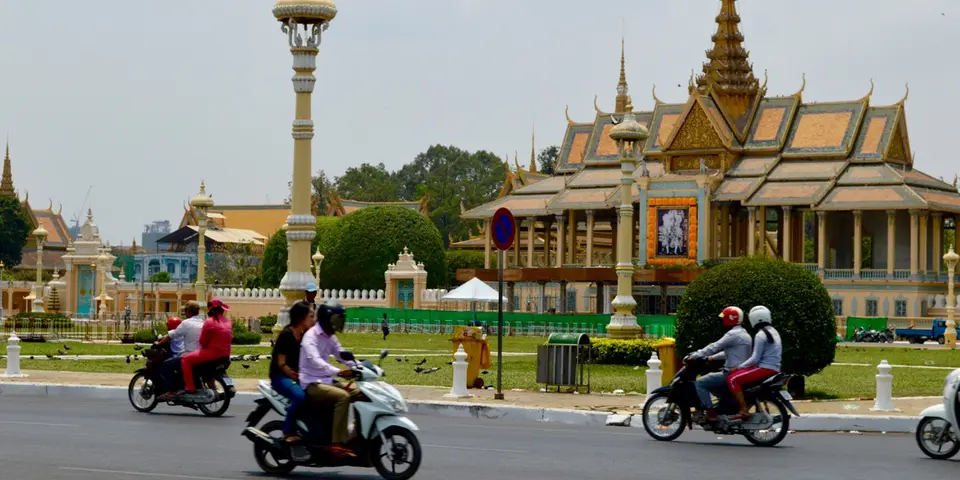
ASEAN parliamentarians alarmed by Cambodia crackdown
August 24, 2017

JAKARTA – Members of parliament from across the ASEAN region expressed grave concerns today over the worsening human rights situation in Cambodia, as the government has continued efforts to crack down on independent media outlets and civil society organizations.
“This crackdown is a dramatic escalation of the government’s moves against critical, independent voices and is deeply concerning for the fate of Cambodian democracy, particularly with national elections less than a year away,” said Malaysian MP Charles Santiago, Chairperson of ASEAN Parliamentarians for Human Rights (APHR).
“For years now, Cambodia has been defined by a climate of fear, instilled by the ruling party as a tactic for remaining in power. But what has occurred in recent weeks is a legal assault on civic space unlike anything we’ve seen since the signing of the Paris Peace Accords in 1991.”
Parliamentarians reiterated concerns about the Cambodian government’s 23 August order to shutter the National Democratic Institute’s (NDI) office in the country and expel the organization’s foreign staff, arguing that the move was a clear example of the dangers posed by the 2015 Law on Associations and NGOs (LANGO), which APHR criticized at the time of its passage.
“Ever since initial drafts were circulated, NGOs and others have raised serious concerns about the possibility that the LANGO would be used to arbitrarily shut down organizations the government deemed to be too critical. The fact that NDI was expelled because it allegedly violated LANGO’s vague provisions regarding registration is proof that our concerns were legitimate, and the implications are stark for all foreign and local organizations operating in the country,” Santiago said.
Last week also saw attacks against Cambodia’s independent press, which, MPs warned, indicates a clear intent by the ruling party to curb freedom of expression ahead of national elections, scheduled for July 2018. At least 15 independent radio were ordered off the air by the government, along with all broadcasts of Voice of America and Radio Free Asia outside the capital. Meanwhile, The Cambodia Daily, a prominent independent newspaper publishing in both Khmer and English, has been hit with a 6.3 million USD tax bill and ordered to shut down by 4 September if it fails to pay up.
“Cambodians are losing an important lifeline to independent information, integral to the successful functioning of a democratic society. The sharp and sudden demise of the limited space for free media that previously existed in Cambodia should alarm even the most cynical observers,” said Philippine Congressman Tom Villarin, an APHR member.
“The Cambodia Daily has been an important source of independent news for over two decades. Everyone must pay their taxes, yes, but tax bills worth millions of dollars cannot be handed down arbitrarily, without providing an opportunity to dispute them. Closing down The Cambodia Daily in this manner is nothing more than a transparent attempt at limiting the amount of information Cambodian people can access on controversial issues,” Villarin added.
Parliamentarians also expressed concerns at the various reports of conspiracy theories circulating on the internet, including on government aligned news outlets, which implicate opposition members and civil society in supposed plans to overthrow the government. Cambodian authorities have failed to condemn these spurious allegations, some of which have preceded government action against their subjects, APHR said.
“The Cambodian government is clearly muzzling the press: closing down reputable news outlets while churning out fake news and supporting conspiracy sites as official propaganda. The false accusations against people and legitimate organizations put them at serious risk from partisan attacks. The Cambodian government should immediately put a stop to this,” Villarin said.
APHR warned that the threat of political persecution against a number of individuals also remains high, particularly given past actions by the Cambodian courts and government.
“Many in Cambodia, including parliamentarians, opposition members, and NGO staffers, still have criminal convictions, charges, or cases hanging over their heads. Given the judiciary’s track record of susceptibility to pressure from the executive branch, we remain highly concerned that judicial harassment will increase as elections near,” said Charles Santiago.
Parliamentarians called on ASEAN member states, as well as the wider international community, to work to uphold previous commitments to support the development of democracy and human rights in Cambodia, including those contained in the 1991 Paris Peace Accords.
“In 1991, countries from around the world, including the ASEAN region, showed commitment to Cambodia’s democratic development when they came together to sign the Paris Peace Accords. More than 25 years later, these same countries have a responsibility to step up and, at the very least, condemn what is happening in Cambodia and encourage respect for fundamental freedoms. Failing to act decisively to combat this serious crackdown will jeopardize all of the effort that went into securing that agreement,” Tom Villarin concluded.
ASEAN Parliamentarians for Human Rights (APHR) was founded in June 2013 with the objective of promoting democracy and human rights across Southeast Asia. Our founding members include many of the region's most progressive Members of Parliament (MPs), with a proven track record of human rights advocacy work.